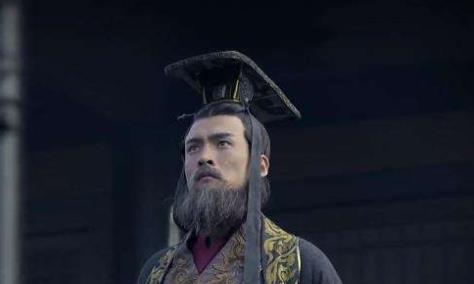We call our country China, which literally translates as the middle country. So are there any foreigners who call us that? No, no matter which language, most of the titles corresponding to China come from ancient Chinese dynasties, of which the most profound influence may be the Qin Dynasty.
The Qin Dynasty was China's first unified dynasty, and its own lifespan was very short, only fourteen years from unification to extinction, which was also a record among feudal dynasties. But it was this Qin Dynasty that enabled countries outside of Chinese civilization to understand the existence of our great country in the East.
China is located at the easternmost tip of the Asian continent and can only communicate with other civilizations if it goes west. Because the Xia and Shang dynasties were too long ago, whether they had contact with other civilizations is still impossible to understand, but the Zhou Dynasty actually exchanged with the outside world. The exchanges between the Qin state and the Great Moon Clan are recorded in the history books.

This Dayue clan once lived in the Hexi Corridor, next to the Qin state, and they called this neighbor to the east the Qin people. This is likely to be the earliest name for China, and it has been used to this day.
The English word we are most familiar with, CHINA, in the more ancient Latin family, is very close to the pronunciation of "Qin". It can be seen that in the ancient European literature, China was called Qin. And the one who brought this title to Europeans should be the Otsuki clan.
Zhang Qian's primary goal in the Western Regions was to unite with the Great Moon Clan to rebel against the Xiongnu, but unexpectedly, the Great Moon Clan had already migrated to Central Asia. They could not defeat the Huns, but they mixed well in Central and South Asia, establishing a Kushan Empire, which claimed to be one of the four major powers in Eurasia at that time.
A strong empire will inevitably bring a strong culture, and the language and writing of the Kushan Empire will radiate to the surrounding countries. Countries in West Asia, Europe and other countries followed them in calling China Qin. Although at this time, the Qin Dynasty had been extinct for many years, they did not know that once the title was fixed, it was difficult to change.
There is also a dynasty in Chinese history, and its ties with the West are relatively close, so that Russia and other peoples have made this dynasty synonymous with China. This dynasty was called the Khitan (Китай), or more precisely, the Western Liao. Coincidentally, the pronunciation of Khitan and Qin is quite similar.
The Western Liao is not very famous in Chinese history, but it has a far-reaching influence in Central Asia. It was a dynasty created by the Liao imperial family Yelü Dashi using the Liao state's garrison in the western region. It dominated the western regions and Central Asia for decades until it was wiped out by the Mongol armies. Russia, on the other hand, rose to prominence through the Golden Horde of the Mongols, and must have dealt with the Khitans.
At this point, the names of other Western civilizations in China have been basically fixed, and other words that have appeared later have evolved and fixed from these. No matter how China changes dynasties, it will not change.
Ancient Greece used to refer to China as Cyris, which was their direct translation of silk. However, the ancient Greek culture was cut off, and modern Europeans still rediscovered these ancient cultures through ancient books in Persia, Arabia and other places. Therefore, their name of China has not been able to continue.
Chinese proud han and tang dynasties had a profound impact on Chinese culture, but it failed to change the way foreign countries called China. The Han people have given our nation a name, and the Tang people are the favorite names of overseas Chinese. However, Chinatown is only Chinese its own name, and it is still Chinatown, which means Chinatown in English.
At the beginning of the 20th century, there was another name that was widely used but was regarded as a disgrace by Chinese - "Indochina". The word first appeared in Buddhist scriptures and is pronounced very close to Latin in Chinese. Originally, there was no praise or disparagement, but the Japanese used the word in a distorted way. The "branch" itself has an unrighteous meaning, which makes Chinese angry at it.
Japanese people like to make a fuss about this kind of detail the most, the United States, Lucia, one is the rice that the Japanese love to eat, and the other is like a dewdrop, and the sun volatilizes as soon as it shines. This technique is used to express the contempt of the Japanese people for the United States and Russia, and "Indochina" is also a product of this idea.
As for the equatorship between China and ceramics, it appeared at the end of the Qing Dynasty. The original English name of ceramics is Chinese tiles, but the second half was simply omitted, which made ceramics and China the same word, but with uppercase and lower case to distinguish.
Chinese civilization has stood in the East for five thousand years, and what others call us is not a very important thing at all. But in certain periods, we need to boost the confidence of the people and say goodbye to the history of humiliation! The word "Indochina" is the most vivid example.
In 1930, the Nationalist government asked Japan to ban the use of the term "China", and the Japanese ostensibly agreed, but in fact they did not use it correctly. This word has been with us throughout the War of Resistance Against Japan until Japan was defeated and stopped using it. There is not enough strength to even make his own name the master, let alone talk about anything else.